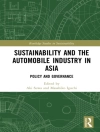As the reader of this book probably already knows, I have devoted a great deal of time to the topic which is, rather unfortunately, named rent seeking. Rent seeking, the use of resources in actually lowering total product although benefiting some minority, is, unfortunately, a major activity of most governments. As a result of this, I have stumbled on a puzzle. The rent-seeking activity found in major societies is immense, but the industry devoted to producing it is nowhere near as immense. In Washington the rent-seeking industry is a very conspicuous part of the landscape. On the other hand, if you consider how much money is being moved by that industry, then it is comparatively small. The first question that this book seeks to answer is: How do we account for the disparity? A second problem is that almost all rent seeking is done in what superficially appears to be an extremely inefficient way. I recently got estimates of the net cost to the public of the farm program and its net benefit to the farmers. The first is many times the second. Indeed, it is not at all obvious that in the long run, today’s farmers are better off than they would be if the program had never been implemented. Of course, in any given year, cancelling the program would be quite painful. The first section of this book, then, is devoted to this problem.
G. Tullock
Economics of Special Privilege and Rent Seeking [PDF ebook]
Economics of Special Privilege and Rent Seeking [PDF ebook]
Beli ebook ini dan dapatkan 1 lagi GRATIS!
Bahasa Inggris ● Format PDF ● ISBN 9789401578134 ● Penerbit Springer Netherlands ● Diterbitkan 2013 ● Diunduh 3 kali ● Mata uang EUR ● ID 4727169 ● Perlindungan salinan Adobe DRM
Membutuhkan pembaca ebook yang mampu DRM












